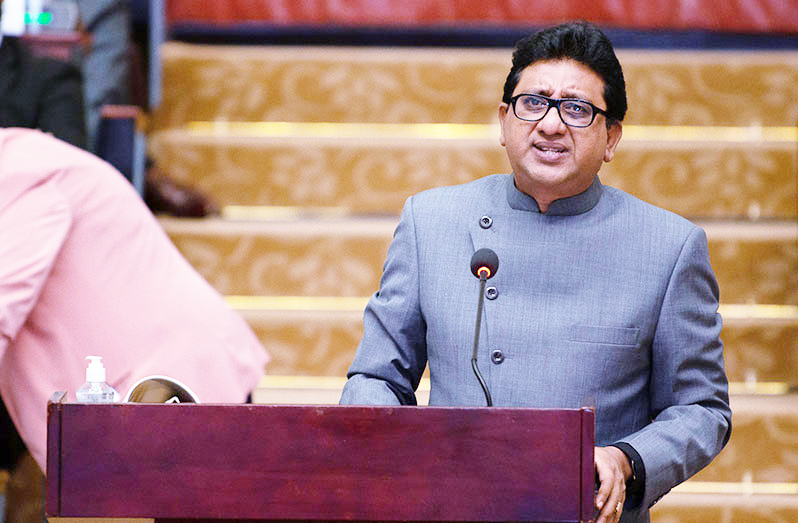THE government has tabled amendments to the law which, if passed, will see fraudsters who dishonestly obtains or dishonestly uses a power-of-attorney, face five years imprisonment and being fined five million dollars for doing so.
Amendments to the Power of Attorney Act and Deeds Registry Act were read for the first time at the 32nd Sitting of the National Assembly of the 12th Parliament of Guyana on Monday. The amendments also propose new requirements for the execution of powers-of-attorney.
A power-of-attorney is legal authority to act for another person. The giver of a power of attorney is called the principal and the person to whom it is given is called the attorney, or the empowered or duly constituted attorney. Powers-of-attorney are usually used when the principal is unable to manage his/her own affairs.
 The Power of Attorney (Amendment) Bill 2021 seeks to amend the Principal Act by inserting new sections to provide for important procedures to be followed by a Notary Public and Magistrate when executing a power-of-attorney, as well as to provide for offences.
The Power of Attorney (Amendment) Bill 2021 seeks to amend the Principal Act by inserting new sections to provide for important procedures to be followed by a Notary Public and Magistrate when executing a power-of-attorney, as well as to provide for offences.
The insertion of Section 2A proposes that the giver of the power and receiver appear personally together before a Notary Public or Magistrate and both provide two forms of original photograph identification as well as a photocopy of the documents, to establish their identity.
Where the giver of the power is out of Guyana and the receiver is in Guyana, they shall each appear personally before a Notary Public or Magistrate, but must also provide the two photograph identifications and copies.
The bill also seeks to insert Section 12 to the Act, to provide for the offences of dishonestly obtaining a power-of-attorney, as well as dishonestly using a power-of-attorney for financial gain by the attorney, or to cause loss to the principal.
The insertion of Section 13 makes it an offence for a Notary Public who is suspended, removed from practice or whose name is not on the register to perform any act pertaining to the office of a Notary Public.
Further, Section 13 makes it an offence for any person to wilfully certify or propound any false statement or document, or fraudulently, with intent to deceive, conceal, withhold or pervert any fact or document pertinent to the subject of a power of attorney.
SUMMARY CONVICTION
Persons who commit an offence under Sections 12 and 13 are liable on summary conviction to a fine of $5,000,000 (five million) dollars and to imprisonment for five years. This includes persons who fail to comply with any duty imposed on them under Section 2A.
In addition, the Deeds Registry (Amendment) Bill 2021 seeks to insert a new section, Section 20A, to the Deeds Registry Act, which notes that no power-of-attorney shall be registered, filed or recorded at the Deeds Registry without attached copies of identification documents, and witness statement where necessary.
If passed, a person who registers, files or records documents purporting to be a power-of-attorney without the attached identification documents and witness statement, will have commited an offence and be liable on summary conviction to a fine of $ 5, 000,000 (five million) dollars and imprisonment to five years.
Attorney-General and Minister of Legal Affairs, Anil Nandlall, S.C., on previous occasions had explained that the amendments to the legislation were part of the government’s efforts intended to prevent and deter fraudulent transactions.
In March 2021, Nandlall disclosed that with fraudsters forging legal documents and selling people’s properties unknown to them, the government was examining ways to strengthen both the administrative apparatus and the statutory framework to improve the system, both in terms of the law and the administrative process.
Since then, he has already taken steps to make the Official Gazette of Guyana the document considered the ‘legal newspaper’ of the country, as it has the statutory authority to make published public and legal notices more accessible by uploading them to various websites and making them available at more locations countrywide.
The Official Gazette plays a major role in the conveyancing of property as prior to the passing of a title for a property, a notice of the conveyance must be published in the Official Gazette.




.png)









